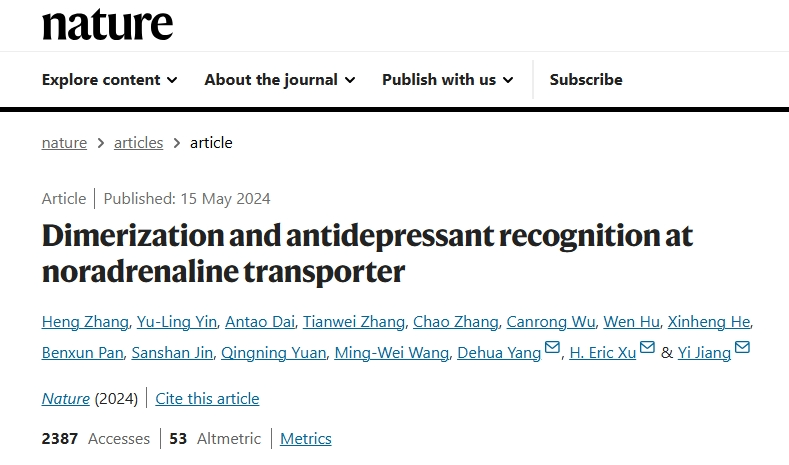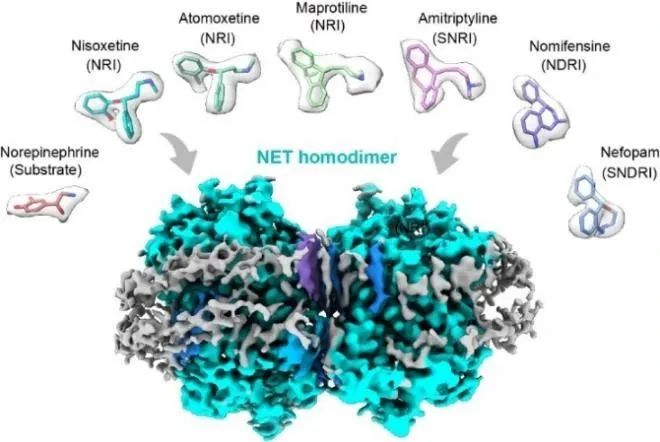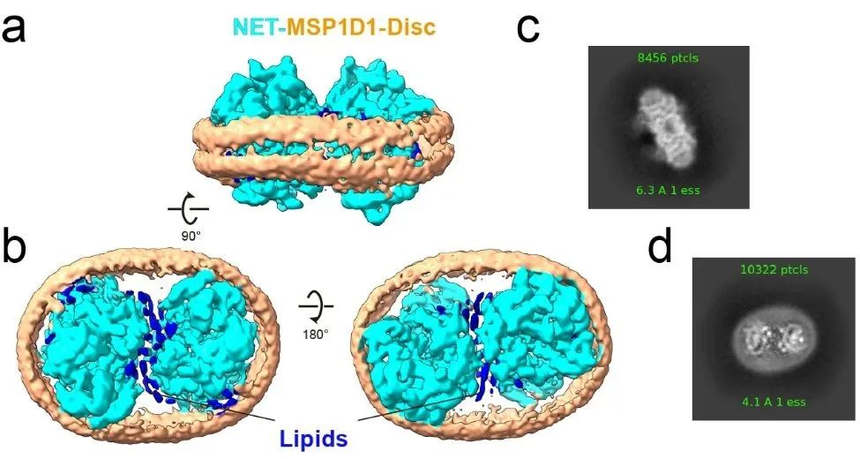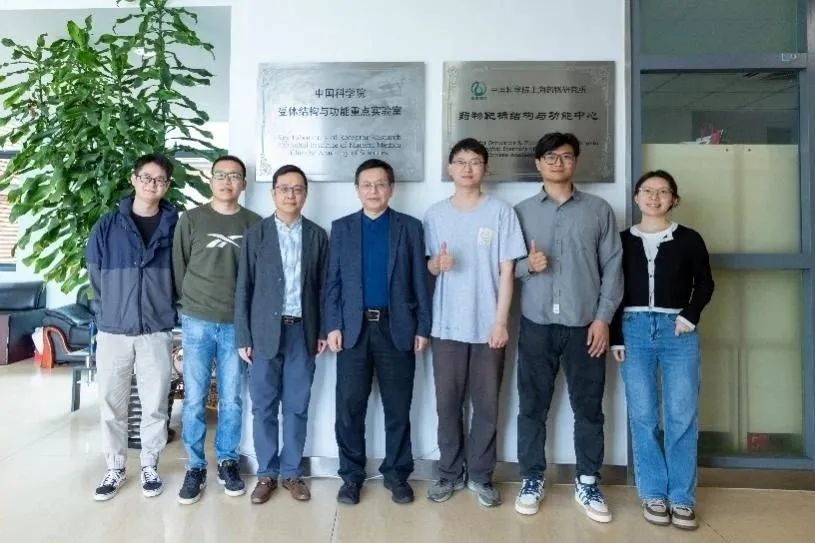Please click the button below to go to our email login page
|
A post-90s doctor published his first Nature article, opening a new direction for lab!On May 15, the post-90s doctor, Heng Zhang, published an article, “Dimerization and antidepressant recognition at noradrenaline transporter”, as a co-first author in Nature. This study was jointly completed by Huaqiang Xu’s research group in Shanghai Institute of Materia Medica, Chinese Academy of Sciences, Dehua Yang’s research group, and Yi Jiang’s research group in Lingang Laboratory.
This study deciphered targets for critical neurological disease---the molecular codes of norepinephrine transporter (NET) homodimerization, transport of natural substrate norepinephrine (NE), and selective recognition of six antidepressant drugs, laying theoretical basis for understanding physiological regulation mechanism of NET and other monoamine transporters (MATs), and having important practical significance for guiding the development of drugs targeting MATs for antidepressants and other neurological and psychiatric diseases.
Unexpected “surprise” during scientific exploration
In 1997, a Finnish scholar proposed “lipid raft model”, where cell membranes exist some areas with dense structure and low fluidity formed by special lipids, like bamboo raft floating on the water surface, accumulating some special proteins that can transmit substances.
Despite increasing evidence regarding “lipid raft model”, there are still queries: do “lipid raft” really exist?
Heng Zhang found the answer accidentally. He, during single particle data processing using cryo-electron microscopy, observed the NET appeared in the form of dimer and presented a “Hamburg model” that is mediated by cholesterol and lipid molecules, which corresponds well to the definition of the “lipid raft model”. Then, the Heng Zhang’s group, using single-particle cryo-electron microscopy, proved that NET dimerization can more efficiently transport neurotransmitters and exert various effects when combined with different antidepressants compared to other transporters.
Ultimately, they completed the paper and submitted to Nature on Teacher's Day in 2023, which was officially published on May 15 this year.
A research achievement needs “favorable climatic, geographical and human conditions”
Multiple studies indicated that NET dysfunction is associated with many kinds of mental diseases, such as depression and anxiety disorder.
Since the PhD project of Heng Zhang was related to transporters and meanwhile a teacher Yi Jiang invited Zhang to research neurotransmitter-related transporters, they then decided to cooperate. This project, with a fresh start, took extremely short time. For this, Huaqiang Xu concluded three reasons:
1. Heng Zhang is clever in mind and skillful in hand. He introduced lipid nanodisk method to mimic the membrane environment of natural phospholipid bilayer and thus clearly observe the dimer structure of NET.
2. The lab has profound accumulations. Huaqiang Xu’s group has dedicated to researching the structure and function of neurotransmitter receptors for a long time, and the lab has developed new technology, such as NanoBiT cross-linking technique.
3. Partners provide great contributions. Under the help of teacher Dehua Yang, radioisotope labeling technique was applied, which help to obtain ideal data within a month.
From entering the lab to opening a new direction
Heng Zhang said, “Teacher Xu allows us to explore freely and helps overcome difficulties.” The commonality among the members of Huaqiang Xu’s research group is the ego drive and confidence in solving difficulties. Under the unconscious influences from the group, Heng Zhang’s motivation has been greatly enhanced and he is also more concentrated on scientific research.
“Our lab originally focused on GPCR, but started to concentrate on transporters after Heng Zhang joined. He opened up a good direction for the lab”, said Huaqiang Xu.
Xu also hoped that Heng Zhang and other students can further conduct research on the next-generation drug molecules, and continue the tradition of the research institute in the field of neurological diseases. |




